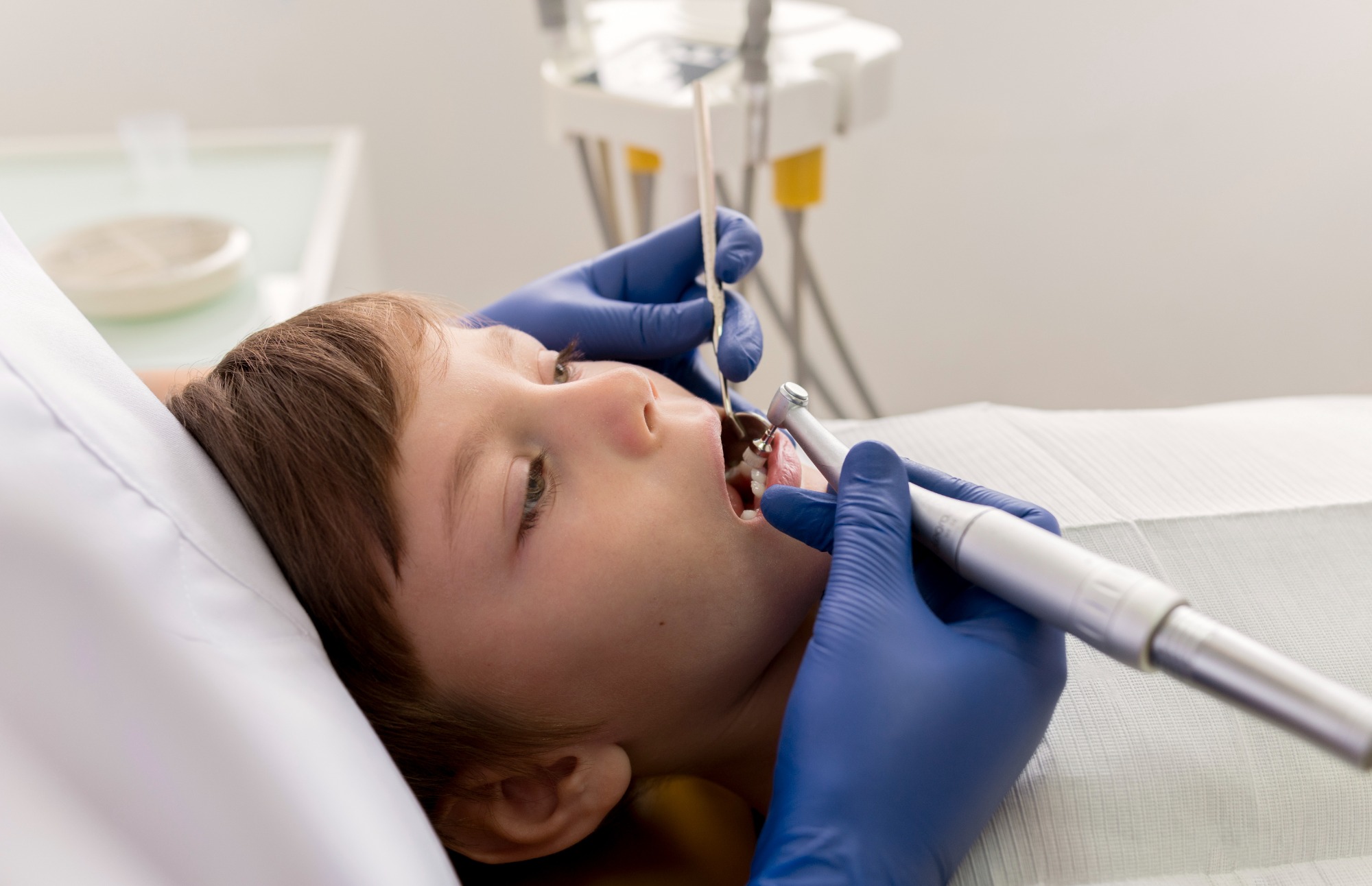
Ensuring your child’s oral health from an early age sets the foundation for a lifetime of healthy smiles. Many parents are unsure when and how to begin caring for their baby’s teeth, but establishing good dental habits early can prevent cavities, gum disease, and other oral health issues. This guide provides comprehensive advice for parents to navigate the essential stages of baby and toddler oral care.
Why Early Oral Care Matters
Baby teeth, also known as primary teeth, play a crucial role in your child’s overall development. They help your child chew and speak properly, hold space for permanent teeth, and contribute to facial development. Neglecting oral care at an early age can lead to cavities, infections, or misaligned permanent teeth. Starting early not only promotes good oral health but also instills lifelong habits.
Oral Care from Birth to the First Tooth
Before your baby’s first tooth appears, their gums still require care to stay healthy and free from bacteria.
- Clean the gums daily: Gently wipe your baby’s gums with a clean, damp washcloth or gauze after feedings. This removes milk residue and bacteria that could harm developing teeth.
- Avoid prolonged bottle use: Never let your baby fall asleep with a bottle of milk, formula, or juice. This can lead to “baby bottle tooth decay,” caused by sugars lingering in the mouth.
Establishing this routine early on makes oral care a natural part of your child’s daily life.
Caring for Your Baby’s First Teeth
The arrival of the first tooth is an exciting milestone, typically occurring around six months of age. Proper care at this stage ensures your baby’s new teeth remain healthy and strong.
- Brushing basics: Use a baby-sized toothbrush with soft bristles and a smear of fluoride toothpaste (about the size of a grain of rice). Brush twice a day, especially before bedtime.
- Teething relief: As teeth begin to erupt, your baby may experience discomfort. Provide teething toys, a cold washcloth, or gentle gum massages for relief. Avoid teething gels containing benzocaine, as they can be harmful.
- Watch for early cavities: Check for white or brown spots on the teeth, which could indicate decay. If you notice these, consult your dentist.
When to See the Dentist
Schedule your child’s first dental visit by their first birthday or within six months of their first tooth appearing. Early visits allow the dentist to monitor your child’s oral health and provide preventive care.
- What to expect: The first visit is usually brief and focuses on familiarizing your child with the dental office. The dentist will check for any signs of decay or developmental concerns and discuss oral care tips with you.
- Benefits of early visits: Introducing your child to the dentist early helps prevent dental anxiety, identify potential issues, and establish a regular care routine.
Oral Care for Toddlers (1-3 Years Old)
As your child grows, their oral care routine evolves. By age three, most toddlers have their full set of 20 primary teeth, requiring consistent care and monitoring.
1. Brushing and Flossing
- Brush twice a day: Use a pea-sized amount of fluoride toothpaste once your child turns three. Encourage independence but supervise brushing to ensure all surfaces are cleaned properly.
- Introduce flossing: Start flossing as soon as two teeth touch. Use child-friendly flossers to make the process easier and fun.
2. Encourage Healthy Eating Habits
Diet plays a significant role in oral health. Reduce sugary snacks and drinks, which can lead to cavities, and focus on nutrient-rich foods that promote strong teeth.
- Offer fresh fruits, vegetables, and calcium-rich foods like cheese and yogurt.
- Avoid sticky snacks like gummies and caramel, which can cling to teeth and increase the risk of decay.
Common Oral Health Concerns for Babies and Toddlers
1. Thumb-Sucking and Pacifier Use
While sucking is a natural reflex for babies, prolonged thumb-sucking or pacifier use beyond age three can affect oral development, leading to issues like misaligned teeth or bite problems.
- Gradually wean your child off pacifiers and discourage thumb-sucking as they grow.
- Offer comfort and rewards to ease the transition.
2. Baby Bottle Tooth Decay
Frequent exposure to sugary liquids from bottles or sippy cups can cause cavities.
- Transition from a bottle to a cup by 12-14 months.
- Offer water between meals and reserve milk or juice for mealtimes.
3. Teeth Grinding (Bruxism)
Some toddlers grind their teeth while sleeping, which is usually harmless and temporary. However, if it causes discomfort or damage, consult your dentist for advice.
Tips for Making Oral Care Fun
Getting toddlers excited about brushing and flossing can be challenging, but incorporating fun into the routine helps make it more enjoyable:
- Sing songs or play music: Use a two-minute song to make brushing time entertaining.
- Let them choose: Allow your child to pick out a toothbrush with their favorite character or color.
- Use apps or timers: Many apps are designed to engage kids during brushing with games or rewards.
- Be a role model: Brush your teeth alongside your child to demonstrate proper technique and make it a shared activity.
Preventive Care Measures
Preventing oral health issues is easier than treating them later. Take these steps to protect your child’s teeth:
- Fluoride: Use fluoride toothpaste and discuss additional fluoride treatments with your dentist if needed.
- Dental sealants: Some dentists recommend sealants to protect molars from cavities once they appear.
- Regular checkups: Visit the dentist every six months to monitor oral health and address any concerns.
Transitioning to Independent Oral Care
As your toddler becomes more independent, encourage them to take ownership of their oral care routine while continuing to supervise.
- Teach proper brushing and flossing techniques through demonstrations and guidance.
- Praise their efforts to build confidence and reinforce good habits.
- Gradually reduce supervision as they master the skills, usually around age six.
FAQs About Baby and Toddler Oral Care
1. When should I start brushing my baby’s teeth?
As soon as the first tooth appears, typically around six months old.
2. How can I clean my baby’s gums before teeth erupt?
Use a clean, damp washcloth or gauze to gently wipe the gums after feedings.
3. Is fluoride toothpaste safe for toddlers?
Yes, but use only a smear (grain-sized amount) for children under three and a pea-sized amount for those three and older.
4. What should I do if my toddler resists brushing?
Make brushing fun with songs, timers, or letting them “help” brush your teeth first. Be patient and consistent.
5. When should I stop using pacifiers?
Ideally, pacifier use should be phased out by age three to prevent oral development issues.
Conclusion
Caring for your baby and toddler’s oral health is an essential part of their overall well-being. By starting early, maintaining a consistent routine, and fostering positive habits, you can help your child develop strong, healthy teeth and a lifelong appreciation for oral care.
Remember, healthy smiles begin at home and with regular dental visits. Your efforts today will ensure your child enjoys a lifetime of happy, confident smiles.




